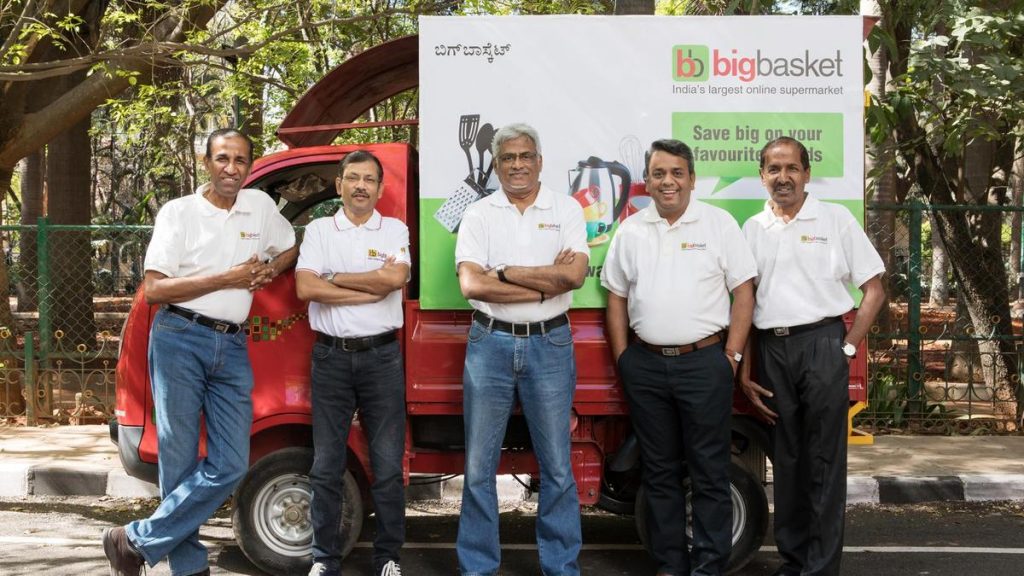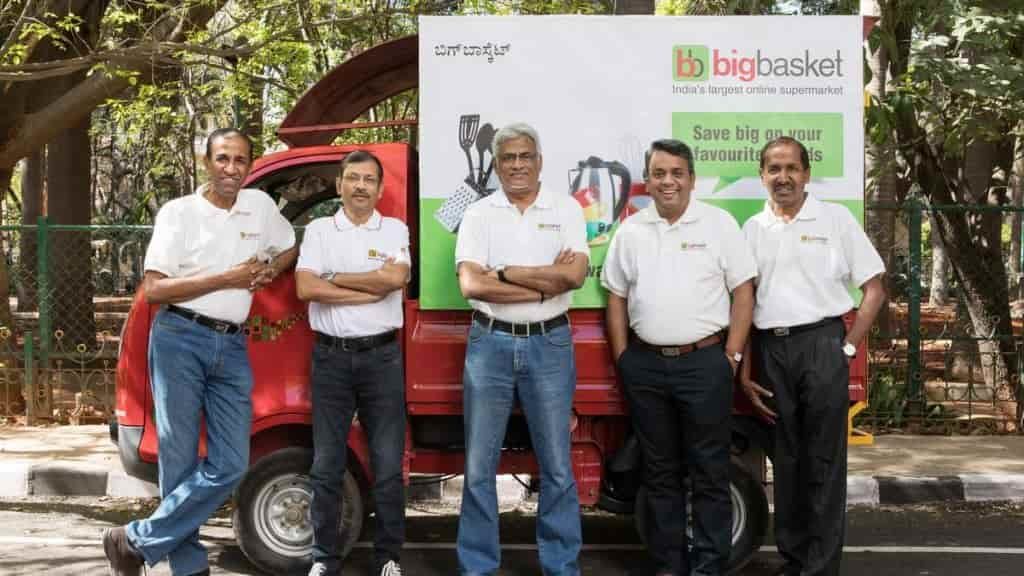Bigbasket : The Success Story of India’s Biggest Online Grocery Store
The days are long gone, when we had to wait for our turn in the long queues at a grocery store after roaming around and shopping for hours. Since online trading has seized a bigger part of marketing, the grocery stores are also getting modernised. And with this revolutionary change, a lot of online grocery stores came up in the digital market, such as Farm2Kitchen, ZopNow, etc. But only a few of them were able to stand high after multiple business turmoil, especially after the dot-com boom. Bigbasket is one of those successful start-ups that became India’s largest supermarket within a few years. Though the founders of Bigbasket started their start-up journey around the time of the market crash in 2000, they were able to establish as one of the leading online grocery stores.
Founders of Bigbasket
Conventionally, when we hear about recent start-ups, we think of young minds with brimming enthusiasm in the business field. But, it has always been that extraordinary ideas come from experienced minds.

Bigbasket is one such start-up whose five founding members already had enough experience in this industry and were skilled in their fields.
Mr Hari Menon, the current CEO, and one of the founders of Bigbasket, also served as the CEO of IndiaSkills, Co-founder of Fabmall, Country Head at Planetasia and Business Head at Wipro.
The four other founding members of Bigbasket includes Mr V S Sudhakar, Mr Vipul Parekh, Mr Abhinay Choudhari and Mr V S Ramesh.
Each of the founders has a unique vision about the business, and their ideas complement each of them. Sudhakar has got a vast experience in the IT sector, and he is also the founder and CEO of Fabmall. Parekh is the Head of Finance and Marketing at Bigbasket, whereas Choudhari serves as the Head of New Initiatives. With 21 years of experience in the logistics sector of the Indian Navy, Ramesh is currently the Head of Logistics and Supply Chain of the company.
History
The five founders started their first online business, Fabmart.com, in 1999. The online grocery division of this business was launched in 2001, and the company grew exceptionally. They also started a succession of grocery supermarkets called Fabmall in Southern India, which the Aditya Birla group acquired in 2006, rebranding it as More. But the founders were still too adamant about establishing something bigger in the grocery market of India and finally launched Bigbasket in 2011.
The Journey Towards Success
The company raised around $10 million in the first round of funding from Ascent Capital. By 2014, the company was growing massively in three major cities, confirming over 5,000 orders every day. In March 2016, the company raised $150 million from Abraaj Capital in Series D funding. In the same year, the company also crossed targeted 10 million customers orders and also received 1million orders in a single month. By June 2017, the company raised around $290 million in total from 8 rounds of funding and 11 investors. In the same year, the company’s most lucrative investors were Paytm and Alibaba, from whom the company raised $280 million in the Series E funding. Some of the investors who participated in the investment rounds of Bigbasket are Bessemer Ventures, Helion, Zodius, LionRock Capital and Meena Ganesh.
With all the investments it received, Bigbasket decided to expand the business in other cities of India, too. The company also built several warehouses and invested in cold room facilities to enhance the range of fresh products. It also invested in technology to make delivery more efficient and shopping easier, both from the browser and mobile application. But amid the growing competition in the market form other companies, like Grofers and LocalBanya, Bigbasket started focussing more on personalized shopping.
After deep research of 5 years, Bigbasket figured out that the products in demand varied from city to city. This helped the company to put more emphasis on those products and expand the number of brands. For example, for the city with more demand for dairy products, Bigbasket introduced an extended range of brands of the milk products for that particular city. This strategy escalated the profit of the company and helped outdo its rivals.
The Future
The company allows customers hassle-free browsing through the products and relaxed shopping. Today, Bigbasket sells more than 12,000 varieties of products of 1,000 different brands in 25 cities.
According to some estimates from the experts, the company may value over $1.2 trillion by 2020.

Annasha Dey is an NIT student, who apart from studying engineering is also a content writer. She has a great interest in photography, writing, reading novels, and travelling as well. She is a foodie who loves socializing and hanging out with her friends. She is also a trained Kathak dancer and a big fashion enthusiast. Dey also loves watching TV series, which includes F.R.I.E.N.D.S. and Big Bang Theory. To be a better writer she prefers to read more
